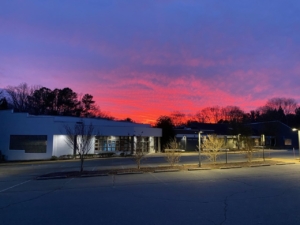Creating Your Jewish Legacy at NVHC
Each of us, regardless of age, wealth, or affiliation, has the ability to leave a legacy. Legacy giving does not require great wealth, only great commitment. Every dollar makes a difference to the NVHC community you care about.
When you create a Jewish legacy, you take an important step toward strengthening Jewish life in Northern Virginia for generations to come. Planning your gift now will help ensure that future generations can enjoy the same rich traditions and closeness of the community that has given your life so much meaning and purpose.
How to Create Your Jewish Legacy at NVHC
What Are Legacy Gifts?
Anyone can do it. It’s easy to do.
Legacy is what you leave behind for your loved ones and your community. By making a legacy gift, you invest in your values and make a difference in Jewish lives, year after year. It’s easy to do. And it’s changeable and revocable at any time. There are many ways to establish your gift, but when it comes through, you will be supporting the NVHC community forever.
Simple Ways to Make a Lasting Impact
Bequest
Bequests: Enables donors to give the Congregation a fixed amount or percentage of their personal property or financial assets through a will or an estate plan. Gifts could include:
- Cash
- Stocks and Bonds
- Real Estate
- Personal Property
- Insurance Policy
- Retirement Plan Assets
Lifetime Income Gifts
Life Income Gifts: Enables donors to receive payments for life while knowing they will also be supporting NVHC. Some examples include:
- Charitable Gift Annuities: Provides donors with a lifetime fixed income stream.
- Charitable Remainder Annuity Trusts: similar to a Charitable Gift Annuity, but with greater flexibility. Provides donors with a lifetime fixed income stream but with potentially better tax benefits for donors giving highly appreciated assets.
- Charitable Remainder Unitrusts: Provides donors with income payments that fluctuate with the value of the trust.
IRA Charitable Rollover Gifts/Qualified Charitable Distributions
IRA Charitable Rollover Gifts/Qualified Charitable Distributions: Enables donors to designate a gift to NVHC that will count toward their annual required minimum distribution and can be excluded from donors’ gross income in the year it is given.
FAQs
What if I need all my money for retirement?
Legacy gifts that are set up as a beneficiary designation in your will, retirement fund, or other ways do not affect your retirement or spending during your lifetime. If you need the resources, you spend them. However, if there’s anything left, you will make a tax free gift with whatever percentage of the remainder that feels right. That percentage can be adjusted anytime during your lifetime. If circumstances cause you to exhaust all of the money in your retirement account during your lifetime, then the charity will not benefit from your intended legacy gift.
I am not wealthy. Are endowments only for wealthy people?
Anyone can make a legacy gift in an amount or percentage that feels right. A legacy gift is not measured by an absolute amount nor is it a reflection of someone’s wealth. Instead, it is a demonstration of what is in your heart as a way to perpetuate your values. A legacy gift can be made by anyone, regardless of financial resources, in an amount or percentage appropriate for that individual. Those amounts or percentages can be adjusted at any time as circumstances change.
In fact, the accumulation of many legacy gifts of all levels is what makes a community strongest.
What if my first concern, my family, is what I consider my legacy?
Absolutely, you should provide for those you love. Please consider that in a real way your legacy gift also provides for your children and grandchildren by ensuring a vibrant Jewish community for them. Even if you only designate five or ten percent of your assets to organizations you care about through a legacy gift, you will still pass along most of your inheritance to your family while still providing for your charitable heirs.
How is legacy giving different than annual giving?
In most instances, the actual payment of a legacy gift happens after your lifetime and is made from a portion of your estate. That means you do not have to part with any money during your lifetime if you choose not to fund the legacy gift while you are living. Annual gifts are normally paid within a year of when the commitment is made. Further, depending on your wishes, legacy gifts are often put into the organizations’ permanent endowment and only a small-specified amount is spent each year to benefit ongoing expenses. The bulk remains in the endowment to grow over time. In contrast, normally all the proceeds of annual gifts cover ongoing programming and operating expenses.
When should I do this?
There is no time like the present to make a legacy commitment. Since, in most instances, your legacy gift will not be paid until after you are gone, there is no financial risk of specifying at least a small percentage of your eventual remaining assets now. This can always be modified in the future as your assets change and your family’s needs evolve. By making the commitment now, you will also enable the organizations you care about to know what they can count on from you and other supporters for their future sustainability.


